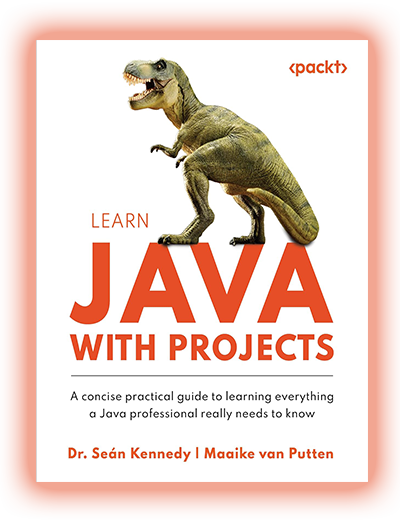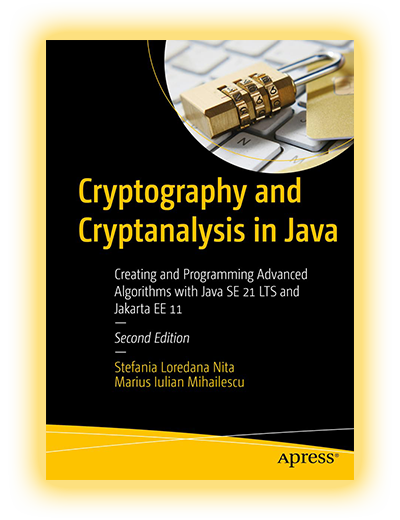"GitHub Copilot for Java Developers" is considered one of the first practical guides that thoroughly explores the use of artificial intelligence in everyday Java development. The author, Pritesh Mistry, demonstrates how to integrate Copilot into workflows, boost productivity, and reshape the approach to writing code.
Today’s Java developer faces high demands: rapid feature delivery, code quality, and adherence to architectural standards. Traditional IDEs have long provided autocomplete, but Copilot takes this concept to a new level. It doesn’t just suggest methods - it can generate entire classes, write tests, analyze context, and adapt to a team’s coding style.
The book goes beyond simply reviewing the tool’s capabilities. It covers real scenarios - from generating templates and working with popular libraries to writing tests and integrating with CI/CD. It’s designed for practitioners who want to gain a competitive edge by applying modern AI tools in Java development.
What does this guide cover?
The content is focused on demonstrating how GitHub Copilot is actually applied in Java development. Pritesh Mistry explains step by step:
- How to install and configure Copilot in IntelliJ IDEA and other popular IDEs.
- How Copilot adapts to project context and coding style.
- How to use it to generate classes, interfaces, and boilerplate structures.
- How to automate the creation of unit and integration tests.
- Where the tool’s limitations lie and when developer intervention is necessary.
The author emphasizes that Copilot doesn’t replace engineers but augments their abilities. It reduces routine, accelerates development, and lets developers focus on architecture and business logic.
The book also addresses limitations and ethical issues of AI-generated code, such as risks of copying unsafe solutions, licensing, and copyright questions.
The guide is suitable for both individual developers and teams that want to introduce Copilot into enterprise environments with a unified adoption strategy.
Who is this book for?
- Experienced Java developers - speed up writing boilerplate code and focus on architecture design.
- Quality engineers - learn test generation techniques to reduce manual effort.
- Team leads and architects - understand how to implement Copilot into team workflows without compromising quality.
- Beginner Java programmers - accelerate learning by observing Copilot’s suggested patterns and examples.
- Enterprise application developers - discover how to leverage Copilot in large codebases and frameworks.
How can the material be applied in practice?
After studying the book, you’ll be able to integrate GitHub Copilot into daily development and increase coding speed. You’ll gain the ability to automate repetitive tasks such as test generation, boilerplate classes, and utility methods. Developers will learn to evaluate Copilot’s suggestions and adapt them to specific tasks. As a result, code quality will improve, debugging time will shrink, and release cycles will accelerate.
The Developer's Opinion About the Book
As a practicing Java developer, I find this book timely and valuable. The industry is buzzing about AI in programming, but structured guides are scarce. This textbook fills that gap.
One of its main strengths is the focus on real scenarios rather than just listing features. I especially appreciated the examples of integrating Copilot with popular Java libraries and generating tests. These are tasks that consume significant time, and Copilot shines in exactly these areas.
The book isn’t flawless, though. Absolute beginners may find it challenging since Java experience and architectural understanding are assumed. Some Copilot-generated examples also require manual refinement - AI doesn’t replace developer thinking.
Nevertheless, I consider it essential reading for anyone working in the Java ecosystem. It helps quickly adapt AI tools to real projects and provides a competitive edge. For me, it became a source of ideas for implementing Copilot in team processes while maintaining high code quality standards.
Alexander Moore, Java Developer
FAQ for "GitHub Copilot for Java Developers"
1. What does the book explain, and why should you read it?
It explains how to use GitHub Copilot in Java development: from simple hints to test generation and code improvement. It shows how Copilot integrates with IDEs, which scenarios truly speed up work, and where caution is needed. Unlike blog posts, the book systematizes experience with practical examples, including code templates, testing, and CI/CD. Its value lies in being the first structured guide to applying Copilot specifically in Java projects.
2. Who is the guide for?
It’s aimed at practicing Java developers who want to incorporate AI into their workflow. Beginners will benefit from syntax and pattern assistance; mid-level developers will speed up routine work; senior engineers will leverage Copilot for prototyping and testing. Overall, it’s suitable for a wide range of specialists, particularly those working with CI/CD pipelines.
3. What practical skills will you gain?
After reading "GitHub Copilot for Java Developers," you’ll be able to: generate boilerplate code, write tests, document APIs, and work with frameworks such as Spring and Jakarta EE. The author highlights not only examples but also limitations, helping set realistic expectations and ensuring Copilot is used where it truly saves time.
4. Does the book include real projects or just code snippets?
It’s based on real-world scenarios. Examples include integrating Copilot into Spring Boot applications, working with REST APIs, and writing JUnit tests. These case studies demonstrate how Copilot performs in real environments, making the book a practical manual rather than just a feature overview.
5. Is it suitable for self-study?
Yes. The book’s structure lets you learn Copilot step by step, from installation and setup to integration into team projects. Examples include explanations and commentary, making the content accessible without an instructor. For deeper practice, online courses on Java and GitHub Actions can complement it, but the book itself is self-sufficient.
Information
| Author: | Pritesh Mistry | Language: | English |
| Publisher: | - | ISBN-13: | B0CWFPG347 |
| Publication Date: | March 15, 2024 | ISBN-10: | - |
| Print Length: | 94 pages | Category: | Java Books |
Get PDF version of "GitHub Copilot for Java Developers" by Pritesh Mistry
Support the project!
At CodersGuild, we believe everyone deserves free access to quality programming books. Your support helps us keep this resource online add new titles.
If our site helped you — consider buying us a coffee. It means more than you think. 🙌

You can read "GitHub Copilot for Java Developers" online right now!
Read book online* →*The book is taken from free sources and is presented for informational purposes only. The contents of the book are the intellectual property of the author and express his views. After reading, we insist on purchasing the official publication on Amazon!
If posting this book in PDF for review violates your rules, please write to us by email admin@codersguild.net



